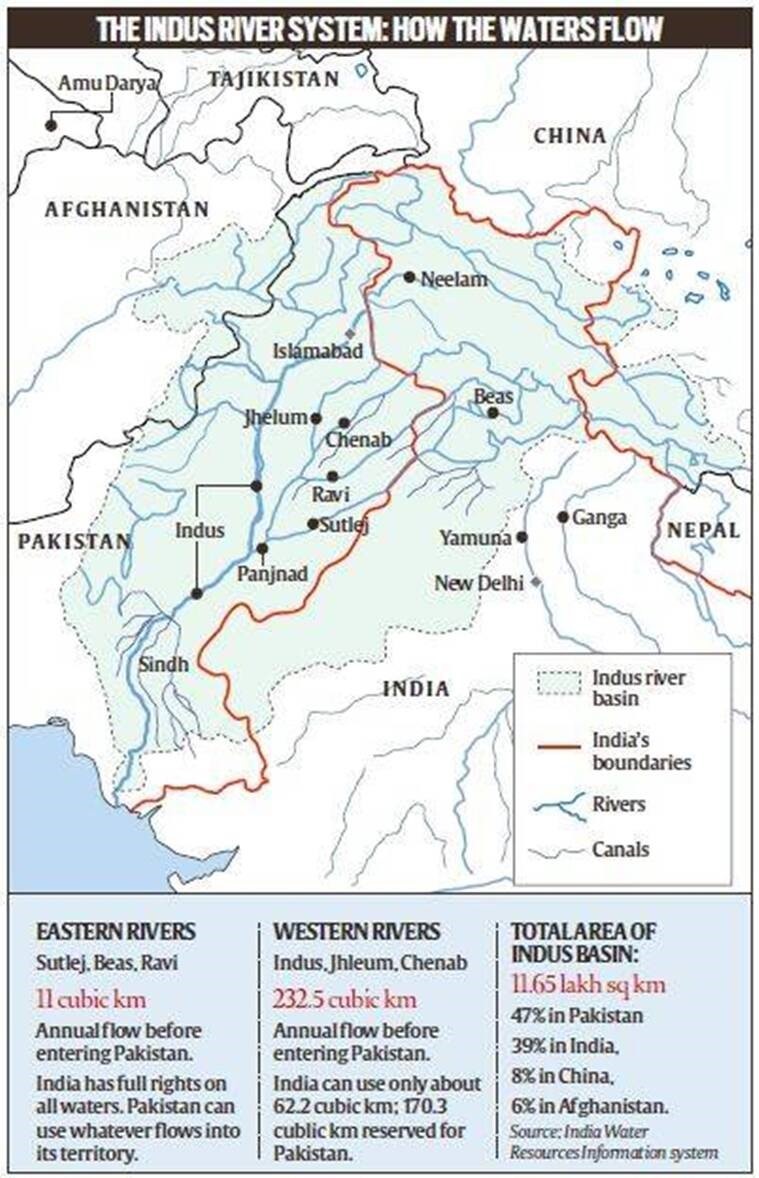The Indus Water Treaty is a water-sharing agreement between India and Pakistan, signed in 1960. The treaty divides the water of the Indus River system between the two countries and has played a crucial role in maintaining peace between them. In this article, we will discuss the history of the Indus Water Treaty, its provisions, and its impact on the relationship between India and Pakistan.

Table of Contents
Background of Indus Water Treaty
The Indus River is one of the most significant rivers in South Asia, originating in Tibet and flowing through India and Pakistan before emptying into the Arabian Sea. The river and its tributaries provide water for irrigation, hydroelectric power, and domestic use to millions of people in both countries.
After the partition of India in 1947, the water resources of the Indus River system became a contentious issue between India and Pakistan. The two countries were unable to reach an agreement on water sharing, and the situation threatened to escalate into a conflict.
In 1951, the World Bank intervened and brokered a treaty between India and Pakistan to resolve the dispute.
Provisions of the Treaty
The Indus Water Treaty divided the water of the Indus River system into two parts – the eastern rivers (Sutlej, Beas, and Ravi) and the western rivers (Indus, Jhelum, and Chenab). The eastern rivers were allocated to India, while the western rivers were allocated to Pakistan.
Under the treaty, India was allowed to use 20% of the water from the western rivers for irrigation, power generation, and domestic use, while Pakistan was given 80%. India was also allowed to construct hydroelectric power plants on the western rivers, subject to certain conditions.
The treaty established the Permanent Indus Commission, consisting of representatives from India and Pakistan, to resolve disputes arising from the implementation of the treaty. The Commission meets regularly to discuss issues related to water sharing and the construction of hydroelectric power plants.
Impact of Indus Water Treaty
The Indus Water Treaty has been successful in maintaining peace between India and Pakistan on the issue of water sharing. The treaty has survived several wars and conflicts between the two countries and has provided a framework for resolving disputes peacefully.
The treaty has also played a significant role in the economic development of both countries. The water of the Indus River system is a critical resource for agriculture, industry, and domestic use in India and Pakistan, and the treaty has ensured that both countries have access to this vital resource.
Conclusion
The Treaty is a landmark agreement between India and Pakistan, which has been successful in resolving one of the most contentious issues between the two countries. The treaty has provided a framework for peaceful cooperation between the two countries on water sharing and has played a crucial role in maintaining peace in the region. Despite several challenges, the treaty has survived for over six decades and remains a shining example of peaceful conflict resolution through dialogue and cooperation.
Important Links